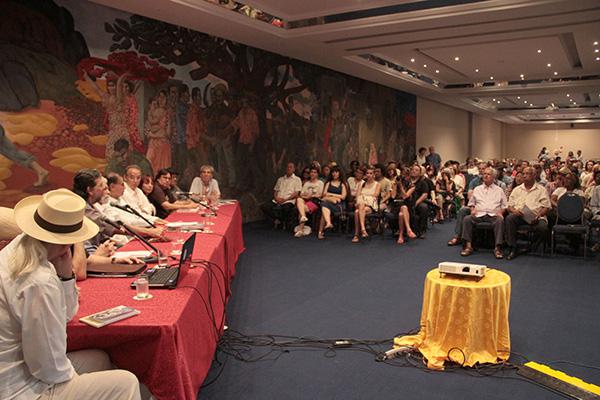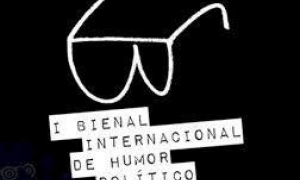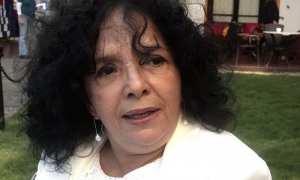
While Cuba could be called the island of poets, to do so rings particularly true right now, as the International Poetry Festival of Havana celebrates it 20th edition, dedicated above all to students.
During activities taking place over the course of the festival, participants who arrived to Cuba from across the world, visited various educational centers in the capital in order to share the universal language of poetry with young students.
One of the first events of the Festival was the Meeting of Poets in Defense of Humanity (RDH), during which a statement addressing the complex international situation affecting the world, experiencing “terrible times when the unstoppable greed of some, their selfishness and irresponsibility, seem to fall like acid rain over the prairies of humanity. The disappeared, unheard, displaced, dispossessed, exploited, discriminated, colonized, exterminated, are millions. The powerful bear their teeth irrespective of the future of this world that belongs to all of us,” was read out.
The document also addresses “the destabilization processes against leftist projects in Latin America,” and the tragedy of the millions of refugees fleeing hunger and war (…) “futilely hammering at the doors of developed countries,” as well as, among the grim realities of the modern world, the appalling advance of the arms race, deforestation, and environmental contamination, situations which must mobilize those committed to doing good, including poets who must use poetry “as a weapon, shield, helmet, lance and steed” in their struggle.
Expressing their commitment to continuing to build their dreams and compose verses acting as “the multifaceted throat of all and defender against injustice,” poets discussed the fundamental aims of the RDH, which according to Omar González, network coordinator in Cuba, are based on increasing integration, the defense of memory, peace as a sacred right, access to communication, information and the truth, in an attempt to combat Machiavellian mechanisms which seek to destroy the peoples.
Presided over by Abel Prieto Jiménez, advisor to the President of Cuba’s Councils of State and Ministers; poet, decorated Hero of the Republic of Cuba and Honorary President of the Festival, Antonio Guerrero; Miguel Barnet, president of the National Union of Writers and Artists of Cuba; Alí Rodríguez Araque, Venezuelan ambassador to Cuba; Alex Pausides, president of the Festival; Omar González, coordinator of the Cuban Chapter of the RDH and Roberto Fernández Retamar, president of the Casa de las Américas, the meeting was a propitious occasion to address issues of tragedy and hope, as confirmed by voices who maintain “a civic attitude marked by ethics and a shared awareness of the danger of a return to the stone age,” in today’s world.
Pausides noted that “in difficult times, poetry, beyond being necessary, is vital,” thus it is “vital to concentrate on poetry in order to shine a light on things to come and name the sacred, reveal what we were, are and will be. Witnesses to human history, words transcend the here and now and mark our place in the world.”
In regards to the work of not only intellectuals but also facilitators, fighters, teachers and activists in the RDH, Abel Prieto noted that all must “unite their actions at a time such as this, a time of total crisis, of ‘anti-poetry’ in which genocide is committed daily, with marked indifference,” later commenting on the current situation in Latin America as imperialism attempts to discredit the region’s leftist leaders.
Alí Rodríguez, highlighting the destabilization campaign currently underway in Venezuela, which is suffering constant attacks from neoliberal forces, emphasized the kind of attitude intellectuals must maintain, stating that “we have the historic reasoning, that which accompanied Bolívar, Chávez, Venezuela and America.”
Ecuadorian Marcos Ribadeneira described the experience of several artists from his country following the recent earthquake, stating that he hoped that poetry might be able to defend against the calamity of these times. For her part, Syrian poet Marak Sahioni spoke about the painful situation affecting her homeland, a nation which hegemonic western powers have decided to destroy, thus annihilating an entire civilization. She noted that the crisis has produced millions of refugees, over one million people have died and thousands are imprisoned, thus “we are only left with words” which she used to call on poets worldwide to contribute to the anthology on refugees.
Concluding the meeting Miguel Barnet stated “let us never cease to be poets” and “let us spread poetry,” because it is only memory that will save us.
Participants also attended a poetry reading in honor of Fidel’s 90th birthday and enjoyed a touching testimony about the Cuban Five by Antonio Guerrero.
The Word of the World Event, held in the la Basílica menor del San Francisco de Asís, considered to be one of the highlights of the Festival, saw various participants present their works.
Although the Festival ends on May 28, it will continue on to the east of the island where poetry activities will be held against the backdrop of a natural setting through June 5, with the inauguration of the Southern Poetry Festival, in the municipality of Pilón, Granma province.






